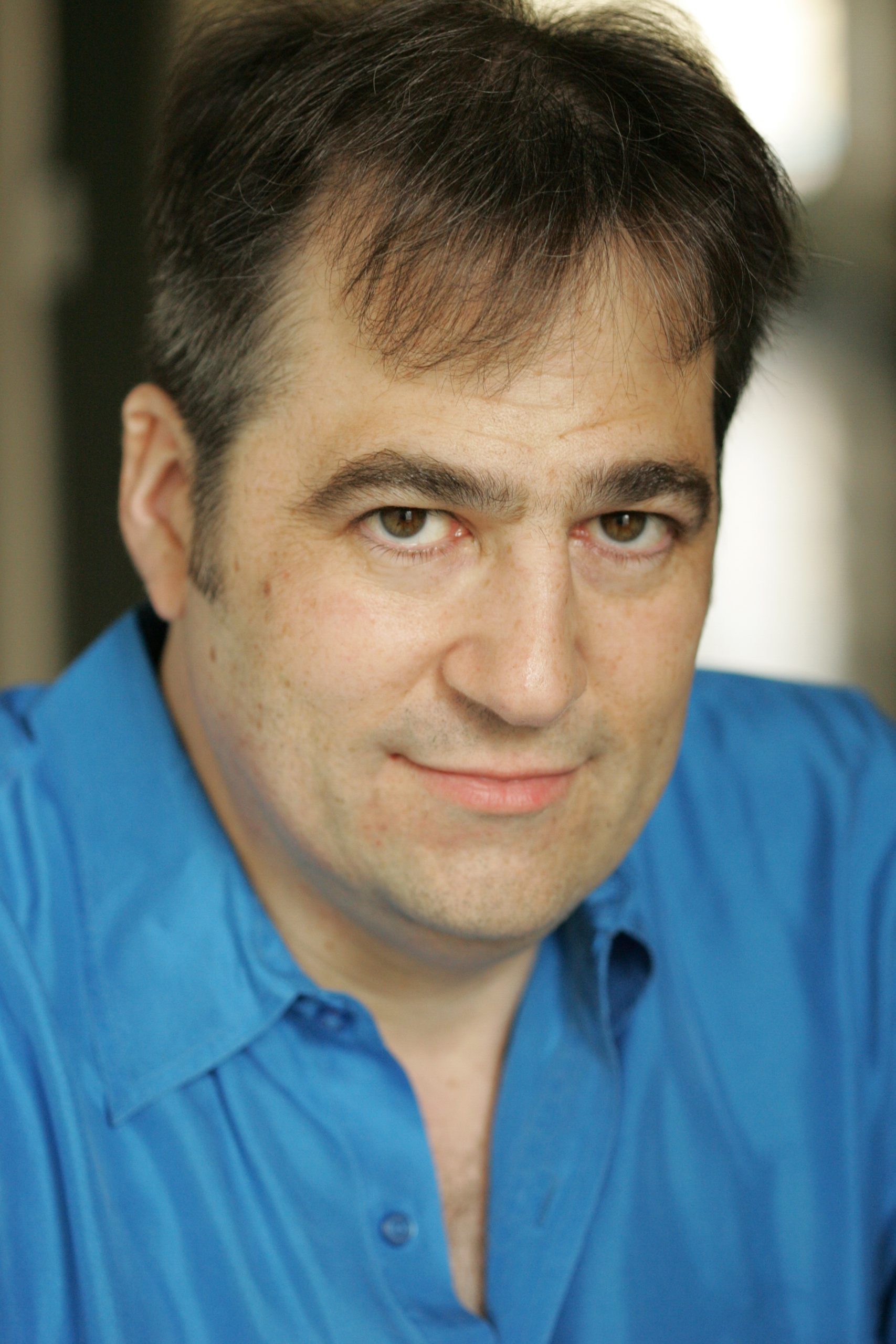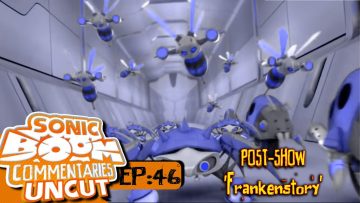
Mike Pollock: Portrait of a Voice Actor (Part 3)
Our conversation with voice actor Mike Pollock concludes with some hypothetical situations and a look at what he loves most about his job. We encourage you to read the first two parts of this interview if you haven’t done so already.
TSSZ: Do you personally prefer one form of one voice work over another, or is it all just work?
Pollock: I love working. Given the choice, I’d be happy to do comedy all day, but I’m a full-service actor, so I will run the range of comedy, tragedy, and everything in between. So, no. There are a few more challenges in medical narration where you’re suddenly pronouncing names like Dupuytren’s contracture, which was for a product that I did, and it’s like, “Really? I’ve never heard of this before! I hope to never hear of it again, but you’re paying me to say Dupuytren’s contracture, so I’d better know how to say it!”
People ask me if I ever play the games that I’m in, and I point out that I’m not a gamer, but my idea of gaming is solving the puzzles of day-to-day work! You know? I did an audiobook that was chock full of German words and phrases, so I had to go through and phoneticize German that I don’t actually speak, but I had to fake it, and that’s why I’m there.
TSSZ: Let’s get a little hypothetical here. Had you failed to break into the voiceover industry and never left New York radio as you knew it, would you have stayed in that industry, or would you have forked off and done something else?
Pollock: Radio had started to change as I was hitting my stride in it, as the various corporate ownerships knocked out the mom-and-pops and started to essentially syndicate one on-air personality around the country. One guy can work in six or seven markets thanks to technology, which goes back to the Internet as a blessing and a curse.
So, toward the end of the radio career, I was working for a radio syndication company, and essentially doing that same sort of thing: writing radio comedy bits and song parodies for morning shows around the country that didn’t have the capabilities or skill to do it themselves. Most of the time, that was fun. I ended up cranking out, at one point, twelve song parodies a week. I did it, I could do it, and that was fun. The management there also changed in such a way that it became less of a thrilling, exciting thing, but had the management stayed on a more accepting level with me, then that would have been a happier place to stay.
That was also chock full of anonymity. I wrote dozens of song and comedy bits over the years that no one ever heard about or cared that they were written by me, but that was good, too.
TSSZ: I’m sure it helps, to some degree, to have the ability to hear it out in the wild, if that makes any sense. You mentioned the anonymous nature of that work. I’d imagine that it’s nice to step out of that every once in a while and hear something you did, especially in terms of the game work that you do that’s exposed to so many people.
Pollock: Oh, sure. Even when I was on radio, I recorded enough commercial stuff for the radio stations when I was out and about – I would hear myself on the radio and say, “Hey! Look! That’s me that no one cares about!” I was bopping through a drug store one day and I heard an amusement park spot that I’d voiced, and the only one that really cared that it was me…was me, but I enjoyed it!
I always like to hear and see what I’ve done. If I’m voicing a TV show that’s airing on a channel that I can receive and I’m able to record it (if it’s on at an inconvenient time), then I’ll watch the stuff I’m in. I may not always be able to follow the plot, depending on who the target audience is, but it’s nice to know that the stuff I record really makes it to air.
TSSZ: Take another step back. Let’s say that you never even broke into the radio industry. Your entire career trajectory would have been completely different at this point. Have you thought about where you would have seen yourself in the event that none of what you’ve done in the past played out?
Pollock: There would have been some type of performance aspect involved. I could have done stage acting. I did that throughout high school and college, but the joy for me in voiceover work is: no lines to memorize, no wardrobe, no makeup. For the short attention span in me, it’s no more than four to six hours. That day’s work is done, and my brain cells are still free of memory! So, there could have been stage action or even on-camera work, but I enjoy – for the way my brain and audio sensibilities work – the aural and very concentrated nature of voiceover.
TSSZ: And it sounds like you’ve settled into your niche with that quite well. As you’ve traversed the industry, I’d imagine that certain parts of it have become more rewarding than others. What’s the most rewarding aspect of performing voiceover work as a whole? What gets you up and out of bed in the morning to do this?
Pollock: Well, my family’s addiction to food, clothing, and shelter means I have to have some type of job. Since this is a skill that I happen to be fairly good at and people throw money at me for it occasionally, just the joy working is enough, because working isn’t work. It’s play. The audition is the work, it’s the recording that’s the play. Being able to know that I’ve got a booking that I can get up for and I don’t have to look for auditions for at least half of that day – that’s great. So, it’s all the auditions and looking for work that pays off with any booking at all, even if it’s a crappy, working-for-Starbucks-money booking. That’s good, too, because someone’s paying me to read aloud! How crazy is that?
We thank Mike for generously taking some time out to talk with us. You can learn more about Mike’s career and keep up with what he’s up to on his website.

![[ID: HsAo6nkErIw] Youtube Automatic](https://lastminutecontinue.com/wp-content/uploads/id-hsao6nkeriw-youtube-automatic-60x60.jpg)

![[ID: EfwtvdClbN0] Youtube Automatic](https://lastminutecontinue.com/wp-content/uploads/2024/04/id-efwtvdclbn0-youtube-automatic-360x203.jpg)


